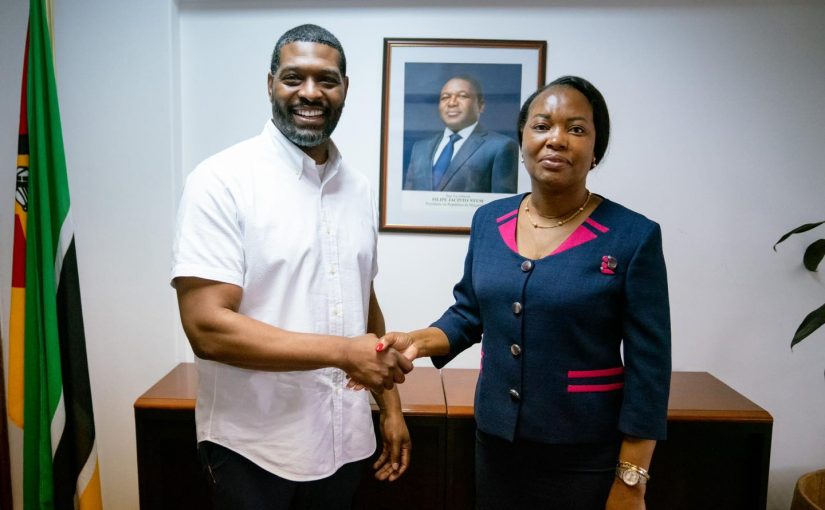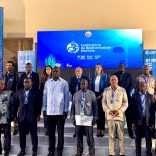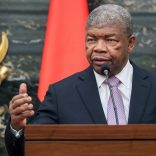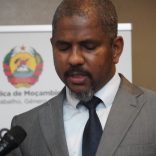Mozambique: President Chapo calls for community- led marine protection and environmental education
Mozambique: US environment agency recognises Maputo’s commitment

Photo: U.S. Embassy in Mozambique
The administrator of the US government’s Environmental Protection Agency (EPA), Michael S. Regan, recognised on Tuesday Mozambique’s commitment to environmental preservation, which is why the institution is going to study support for the country.
“We’re going to pursue that. There are a number of conversations that we’re having through USAID [United States Agency for International Development], the US embassy here and the EPA, to think about how we can provide resources, whether intellectual or dollars, to help fuel this enthusiasm that we’re seeing here on the ground in Mozambique,” said Michael S. Regan, in an interview with Lusa in Maputo.
On the second and last day of his visit to the Mozambican capital, before leaving for Ghana, the official, who is the equivalent of the environment minister in the US administration, took a closer look at a mangrove protection and recovery project on the beach in Bairro dos Pescadores, on the outskirts of Maputo.
“Here in Mozambique, we want to provide technical assistance on mining aspects so as not to degrade the environment while we look for a cleaner future for everyone,” he said.
Among other minerals, Mozambique is one of the countries that supplies graphite for the production of batteries for electric vehicles.
The country is also one of the most threatened by climate change, with regular periods of cyclones and severe droughts, which the EPA is aware of and intends to support Mozambique with.
“Yes, without a doubt. We have a lot of technical expertise that we can provide in terms of beach erosion, trying to mitigate climate pollutants like methane, but also, as a global society, when we start looking for clean energy, we recognise that there are some essential minerals that are needed for that supply chain,” said the EPA administrator.
Administrator Regan’s mission to the two African countries responds to President Biden’s “call” for action at the 2022 US-Africa Leaders Summit “to expand substantive and meaningful partnerships with countries, institutions and people across the continent,” the EPA previously explained.
“This first leg of the trip has been simply fantastic. Meeting with the leaders, the commitment to clean energy, the circular economy and recycling, the way the government is engaging young people to create a movement, it’s been really fascinating,” recognised the administrator, who also met with the Mozambican executive on Monday.
“We discussed formal partnerships to help our young people from both countries use best practices in terms of sharing specialised and technical knowledge. We also have expertise that we can bring to some of the climate-related issues,” he added.
He also said that “there are many opportunities to think about employment, economic development and workers” when “thinking about recycling in a circular economy”.
That’s why the aim is to “share some ideas to help the two countries overcome pollution,” he emphasised, also about the upcoming visit to Ghana.
“Resilience”, he added, is the image he takes away from his visit to Maputo: “I got involved with the beautiful people of Mozambique who are deeply committed to preserving their ecosystem”.
“And now Ghana. We want to continue to demonstrate that the [US] President’s vision for a very strong partnership is serious and that the EPA is doing its part,” Michael Regan concluded.
I was honored to see Minister of Land & Environment Ivete Maibaze again, but this time on my first day in Mozambique. The Minister and I continued our discussion of shared environmental priorities and commitment to building an even deeper partnership to build solutions together. pic.twitter.com/8WlotDEAAS
— Michael Regan, U.S. EPA (@EPAMichaelRegan) January 22, 2024
Nothing is going to waste here in Macaneta Beach. pic.twitter.com/KgJdxTu04F
— Michael Regan, U.S. EPA (@EPAMichaelRegan) January 23, 2024
While visiting Macaneta Beach in Mozambique, I was able to see firsthand the impacts coastal erosion has on the community, and the ways in which local leaders are working to reverse these effects.
— Michael Regan, U.S. EPA (@EPAMichaelRegan) January 22, 2024












Leave a Reply
Be the First to Comment!
You must be logged in to post a comment.
You must be logged in to post a comment.